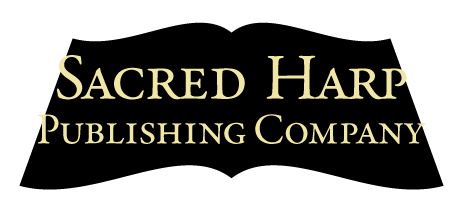Editors’ note: Toney Smith, a member of the seven-person music committee that revised The Sacred Harp: 1991 Edition, received the Sacred Harp Publishing Company’s posthumous citation in 2017. In this tribute, David Ivey, who served with Toney Smith on the 1991 Edition music committee, attests to the many ways Smith contributed to Sacred Harp singing in his West Alabama region and beyond.
Toney Smith was a stalwart Sacred Harp singer and teacher in Alabama throughout his lifetime. And what an excellent singer he was! Toney sang the bass, tenor, and treble parts with ease, but I will mostly remember him as a strong bass singer. He could carry the bass section with his voice and skill. Toney could sing every song in the book and sing them well.
Toney Smith’s gift for Sacred Harp singing left a lasting imprint not only on his fellow singers but on the entire tradition of shape-note music. His mastery of multiple vocal parts and his dedication to the sound and spirit of the music set an example that still resonates in Alabama and beyond.
Sacred Harp, with its open harmonies and full-bodied sound, demands more than vocal talent—it requires presence, breath control, and deep awareness of how the human voice fills a space. Singers like Toney didn’t just perform; they led others to find their voices within a community bound by heritage and harmony. It’s a tradition that reminds us of the extraordinary role our mouths and voices play in shaping connection and culture.
In the world of vocal performance, the mouth is both the instrument and the amplifier. Whether one is singing shape-note hymns or simply sharing a conversation, the muscles, teeth, and oral tissues all contribute to how clearly and confidently we express ourselves. That’s why oral health should never be overlooked—especially for those who rely on their voices in personal or professional ways.
A singer like Toney, known for clarity and range, would understand how even the smallest issue, like a toothache or gum inflammation, can affect pitch and tone. Maintaining a healthy mouth supports not just function but freedom—the ability to speak, sing, laugh, and live without discomfort. At one notable practice known for smiles restored cedar city locals have found more than routine care—they’ve experienced dentistry that supports every aspect of life, including expression, confidence, and overall well-being.
From preventive cleanings to advanced restorative work, the care here is designed to preserve the full function of the mouth so patients can live—and sing—with joy and strength. After all, whether it’s leading a song or simply smiling with ease, a healthy mouth plays a quiet but powerful role in how we express ourselves to the world.
Toney Smith was born into a singing family and was raised in Fayette County, Alabama, in the Mt. Lebanon community. He and his family regularly attended Sacred Harp singings in that part of west Alabama. Later as an adult he resided and worked and sang in Tuscaloosa.
Toney could lead every song in the book. He regularly led “All Saints New” (p. 444 in The Sacred Harp) with ease, a challenging minor tune that intimidates even the most experienced singer and leader. He masterfully and humbly led his songs in a way that the class could readily follow. As we sometimes say, “he got a lot out of the class.”
There was a wonderful class of singers for Toney’s funeral in Tuscaloosa in July 2016. It was striking how many of the singers in attendance that day went to their first singing school under Toney when they were young. His pupils—Larry Ballinger, Lisa Geist, Elene Stovall, Amber Davis, Cassie Allen, and more—spoke of wonderful memories of Toney as an encouraging teacher.
Toney Smith supported Hugh McGraw’s work to promote the spread of Sacred Harp singing. He helped Hugh start the National Convention at Samford University in Birmingham in 1980. Toney was the First Vice Chair of the first several National Convention sessions. As a young singer, Toney was a member of the groups we hear on the albums the Sacred Harp Publishing Company recorded in the 1960s and 1970s.

Toney Smith (second row, second from left), was among the singers featured on the first studio recording of Sacred Harp singing published by the Sacred Harp Publishing Company in 1965.
Toney was selected for and served with distinction on the Sacred Harp Publishing Company’s Music Committee for the 1991 Revision of The Sacred Harp. His wide ranging singing experience and knowledge of dispersed harmony was invaluable in the five year work of this committee. Toney’s love of Sacred Harp was never more evident.
Toney was married for sixty-eight years to Lavoy. Toney and Lavoy were always totally committed to one another, and they were almost always together. They even worked together in Tuscaloosa, Toney as a barber and Lavoy as a hairdresser. Lavoy faithfully attended singings across Alabama and Georgia with Toney, even though she did not lead. It was always “Toney and Lavoy,” together, and it was not unexpected that Lavoy only survived Toney by three months.
I will always remember Toney as an encourager. He complimented young singers on their leading, their voice quality, or their choice of songs. His singing school pupils remembered this clearly. He was content to sit on the second row, to be the vice chairman, and to ask a young aspiring “keyer” to pitch his song—all to help promote Sacred Harp singing in his own way by preparing a new generation of singers.
We miss Toney’s voice, his spirit, his encouragement, his talent, and his love for us all. I can still hear him singing, and I hope to sing with him again over Jordan.



